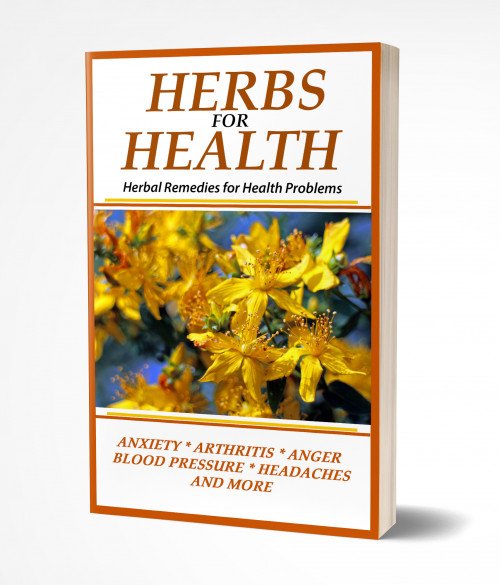
Herbs for Health: Unlocking Nature’s Power for Wellness
Herbs have been used for centuries across cultures for their medicinal and therapeutic properties. From ancient civilizations to modern times, these natural remedies have stood the test of time due to their remarkable ability to support health and well-being. In this article, we explore the benefits of various herbs, their historical use, how they work, and how you can incorporate them into your daily routine for better health.
What Are Medicinal Herbs?
Medicinal herbs are plants that have been used in traditional medicine to treat or prevent illnesses, alleviate symptoms, and promote overall health. These herbs contain active compounds that can interact with the body’s systems to provide healing effects. From boosting immunity to promoting digestion, herbs offer a wide array of benefits, often without the harmful side effects associated with synthetic pharmaceuticals.
The Science Behind Herbs
The power of medicinal herbs lies in the bioactive compounds they contain. These include alkaloids, flavonoids, terpenes, and essential oils. When consumed, these compounds can support the body’s natural processes, enhance immune function, reduce inflammation, and more. Additionally, herbs often have antioxidants that help neutralize free radicals, preventing oxidative damage to cells and tissues.
Top 10 Herbs for Health and Their Benefits
Let’s dive into the top 10 herbs that are celebrated for their health benefits and how they can positively impact your life.
1. Ginseng
Scientific Name: Panax ginseng
Common Use: Energy booster, stress reliever, cognitive enhancer
Ginseng is one of the most well-known adaptogenic herbs, meaning it helps the body respond to stress and maintain balance. It has been used in traditional medicine to boost energy, reduce fatigue, and improve mental clarity. Ginseng is also known for enhancing immune function, reducing inflammation, and improving circulation.
Benefits:
- Increases energy levels
- Improves cognitive function and memory
- Reduces stress and anxiety
- Enhances the immune system
- Supports cardiovascular health
2. Turmeric
Scientific Name: Curcuma longa
Common Use: Anti-inflammatory, antioxidant
Turmeric is a powerful herb known for its active compound curcumin, which gives it its vibrant yellow color. Curcumin has strong anti-inflammatory and antioxidant properties, making turmeric a go-to remedy for conditions like arthritis, digestive issues, and even skin conditions like eczema.
Benefits:
- Reduces inflammation
- Supports joint health
- Improves digestion
- Has anti-cancer properties
- Promotes healthy skin
3. Peppermint
Scientific Name: Mentha piperita
Common Use: Digestive aid, headache relief
Peppermint is widely used to relieve digestive issues such as bloating, gas, and indigestion. The menthol in peppermint can also act as a muscle relaxant, providing relief for headaches and migraines when applied topically or inhaled. It’s commonly used in teas and essential oils for its soothing effects.

Benefits:
- Relieves indigestion and bloating
- Eases headaches and migraines
- Supports respiratory health
- Reduces nausea and vomiting
- Alleviates muscle tension
4. Lavender
Scientific Name: Lavandula angustifolia
Common Use: Relaxation, sleep aid, anxiety relief
Lavender is renowned for its calming and relaxing properties. It is often used to reduce anxiety, promote restful sleep, and alleviate stress. The essential oil of lavender has been studied for its ability to lower heart rate and blood pressure, helping to calm the nervous system.
Benefits:
- Reduces anxiety and stress
- Improves sleep quality
- Relieves headaches
- Supports skin health (used in creams and oils)
- Acts as an anti-inflammatory
5. Echinacea
Scientific Name: Echinacea purpurea
Common Use: Immune system support, cold prevention
Echinacea is often used to prevent or shorten the duration of colds and respiratory infections. It is believed to stimulate the immune system, helping the body fight off viruses and bacteria more effectively. Echinacea is available in various forms, including teas, capsules, and tinctures.
Benefits:
- Boosts immune function
- Shortens the duration of colds
- Helps fight infections
- Reduces inflammation
- Improves skin health
6. Ginger
Scientific Name: Zingiber officinale
Common Use: Digestive aid, anti-nausea, anti-inflammatory
Ginger has long been valued for its ability to soothe the stomach and aid digestion. It is particularly effective in relieving nausea and vomiting, especially for those suffering from motion sickness, pregnancy-related nausea, or chemotherapy-induced nausea. Ginger also has anti-inflammatory properties, making it useful for pain relief.
Benefits:
- Relieves nausea and vomiting
- Improves digestion and reduces bloating
- Reduces inflammation and pain
- Supports immune health
- Enhances circulation
7. Holy Basil (Tulsi)
Scientific Name: Ocimum sanctum
Common Use: Adaptogen, stress relief, immune booster
Holy basil, or tulsi, is revered in Ayurvedic medicine for its ability to balance the body and mind. It is an adaptogen, meaning it helps the body adapt to stress and promotes overall well-being. Holy basil can enhance the immune system, reduce inflammation, and promote a sense of calm.
Benefits:
- Reduces stress and anxiety
- Boosts immune function
- Balances blood sugar levels
- Improves respiratory health
- Promotes heart health
8. Chamomile
Scientific Name: Matricaria chamomilla
Common Use: Sleep aid, digestive support
Chamomile is widely known for its calming and sleep-inducing properties. Drinking chamomile tea before bed is a common remedy for insomnia and anxiety. It also has mild anti-inflammatory and digestive benefits, making it useful for alleviating symptoms of indigestion and bloating.
Benefits:
- Promotes relaxation and improves sleep
- Relieves anxiety and stress
- Eases digestive discomfort
- Supports skin health (used in topical creams)
- Reduces menstrual cramps
9. Ashwagandha
Scientific Name: Withania somnifera
Common Use: Stress reduction, energy booster
Ashwagandha is an adaptogenic herb that has been used in Ayurvedic medicine for thousands of years. It helps the body manage stress and anxiety, boosts energy levels, and supports mental clarity. It also has antioxidant properties that help protect against cellular damage.
Benefits:
- Reduces stress and anxiety
- Improves energy and stamina
- Supports brain health and cognitive function
- Enhances fertility in both men and women
- Supports heart health
10. Milk Thistle
Scientific Name: Silybum marianum
Common Use: Liver detox, antioxidant
Milk thistle is most commonly used to support liver health. It contains an active compound called silymarin, which has potent antioxidant and anti-inflammatory properties. Milk thistle is often used in detox programs to help protect and regenerate liver cells from damage caused by toxins, alcohol, and other harmful substances.
Benefits:
- Supports liver health and detoxification
- Protects against liver damage
- Reduces cholesterol levels
- Improves skin health
- Boosts immune function
How to Incorporate Herbs into Your Routine
Incorporating herbs into your daily life is easy and can be done in several ways. Here are some common methods:
- Herbal Teas: Many herbs, such as chamomile, peppermint, and ginger, can be consumed as herbal teas. Simply steep the dried herb in hot water and enjoy its benefits.
- Tinctures and Extracts: Herbal tinctures are concentrated liquid extracts made from herbs. They are easy to take and can be added to water or other beverages.
- Essential Oils: Essential oils from herbs like lavender, peppermint, and eucalyptus can be used for aromatherapy or applied topically (diluted with a carrier oil) to relieve headaches, stress, and other symptoms.
- Supplements: Many herbs, such as ginseng, turmeric, and ashwagandha, are available in capsule or tablet form. These can be taken as part of a daily supplement regimen.
- Herbal Cooking: Some herbs, like basil, rosemary, and thyme, are commonly used in cooking. Adding these herbs to your meals can enhance the flavor while providing medicinal benefits.
Precautions When Using Herbs
While herbs are generally safe, it’s important to use them with care. Some herbs may interact with medications or cause allergic reactions. Always consult a healthcare professional, especially if you are pregnant, nursing, or have underlying health conditions. It’s also advisable to start with small doses and observe how your body reacts before increasing the amount.
Conclusion
Herbs for health offer a natural and effective way to enhance your overall well-being. With their rich history and proven benefits, herbs like ginseng, turmeric, peppermint, and lavender can play a vital role in supporting various aspects of health, from immune function to stress relief. Whether you incorporate them into your diet, use them as supplements, or enjoy their soothing effects through teas and oils, medicinal herbs provide a holistic approach to wellness. As always, be mindful of proper usage, and consult with a healthcare provider when necessary. By harnessing the power of herbs, you can nurture your body and mind for a healthier, more balanced life.
This comprehensive guide covers essential herbs and their benefits, offering a valuable resource for individuals looking to incorporate more natural remedies into their lives. Whether for stress relief, immune support, or digestive health, these herbs have a long-standing reputation for promoting wellness.




